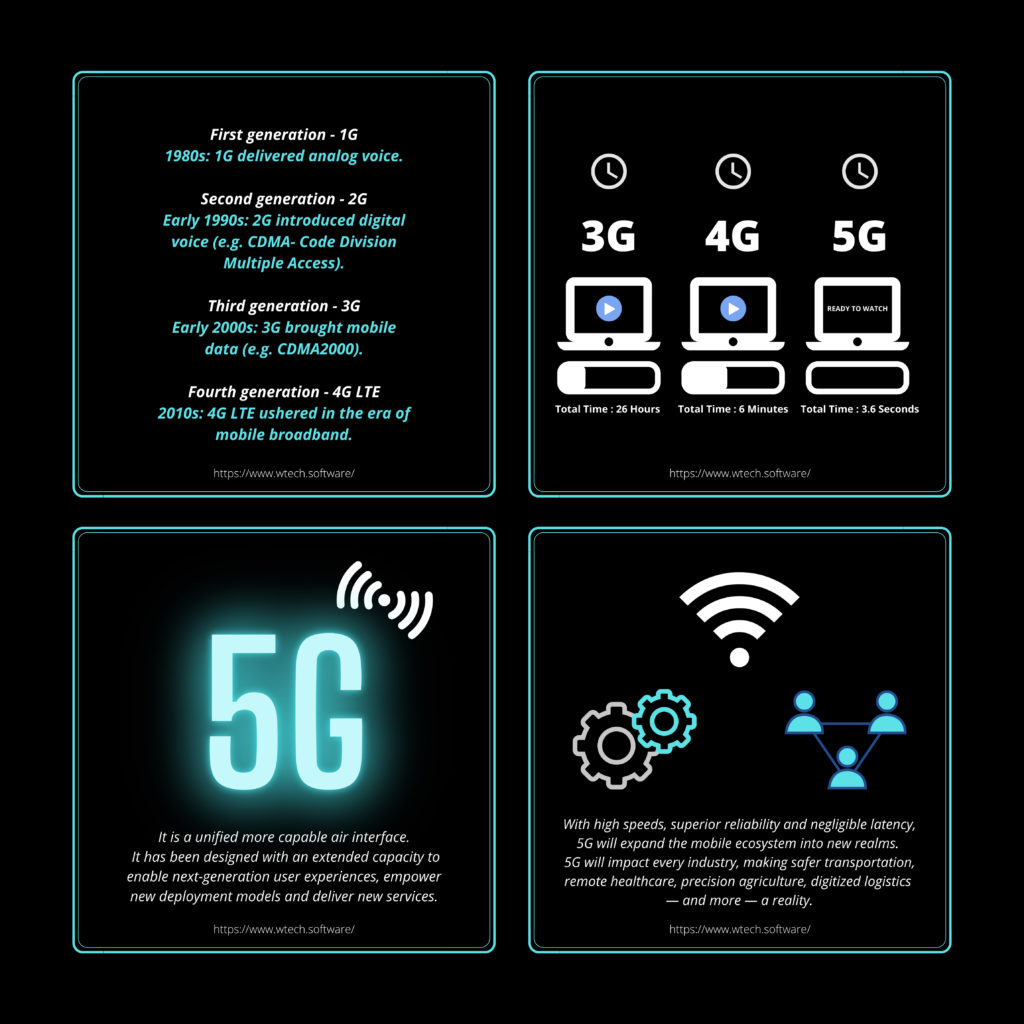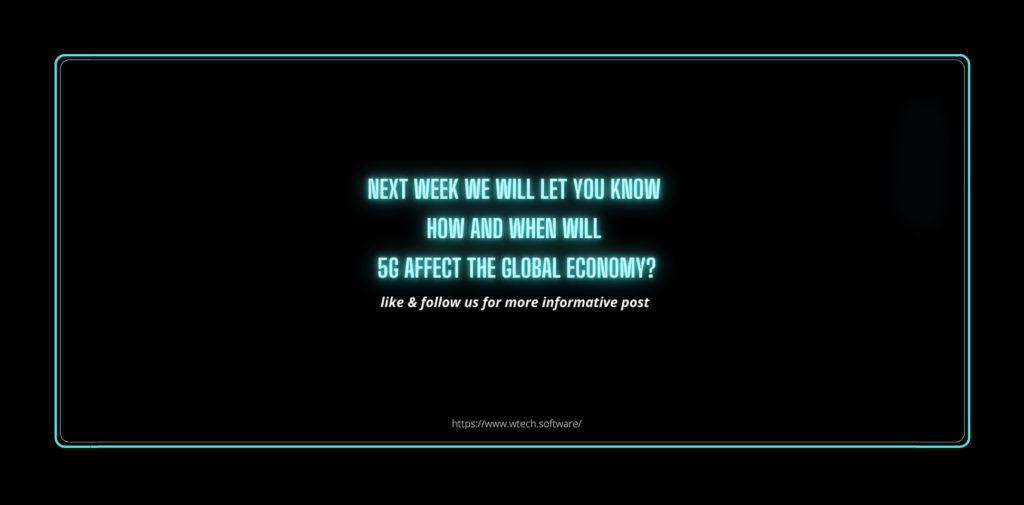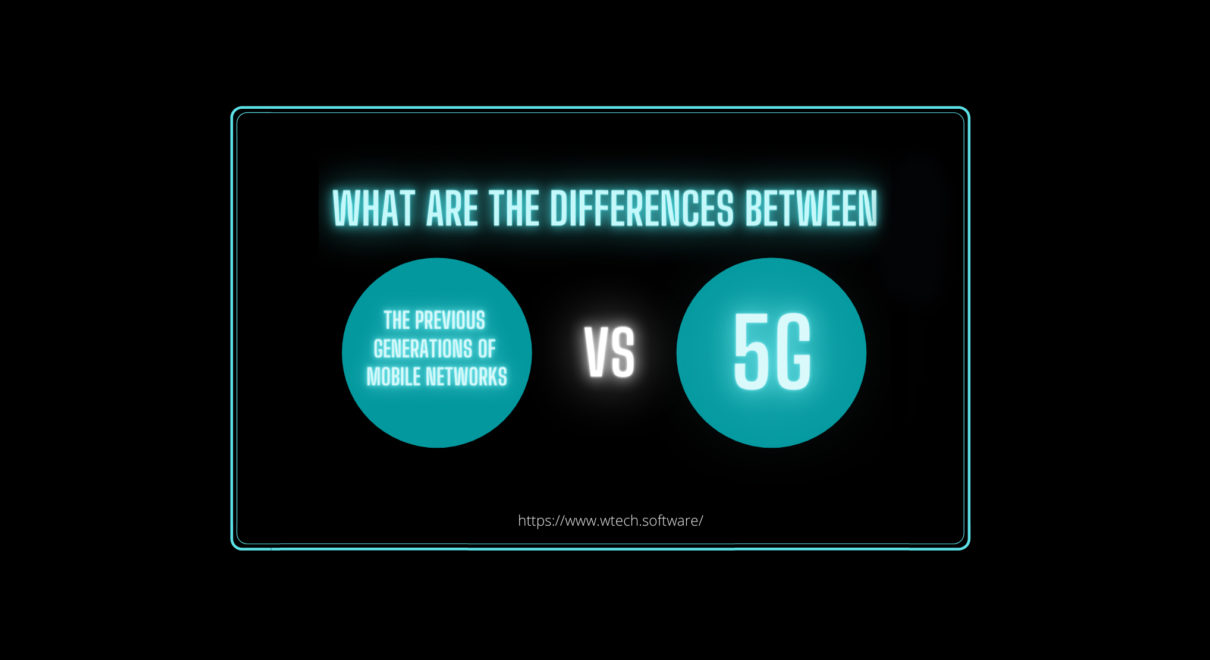Like the previous post, we’ve talked about “What is 5G?”
Now we need to know the differences between the previous generations of mobile networks and 5G.
The previous generations of mobile networks are 1G, 2G, 3G, and 4G.
First-generation – 1G
The 1980s: 1G delivered analog voice.
Second-generation – 2G
The early 1990s: 2G introduced digital voice (e.g. CDMA- Code Division Multiple Access)
Third generation – 3G
The early 2000s: 3G brought mobile data (e.g. CDMA2000).
Fourth-generation – 4G LTE
The 2010s: 4G LTE ushered in the era of mobile broadband.



1G, 2G, 3G, and 4G all led to 5G, which is designed to provide more connectivity than was ever available before. 5G is a unified, more capable air interface. It has been designed with an extended capacity to enable next-generation user experiences, empower new deployment models, and deliver new services.
With high speeds, superior reliability, and negligible latency, 5G will expand the mobile ecosystem into new realms. 5G will impact every industry, making safer transportation, remote healthcare, precision agriculture, digitized logistics — and more — a reality.
If you want to know more, please like and follow us. We have the answers. We will let you know everything you need to know about 5G.











